Capital gains under section 45 of Income Tax act 1961
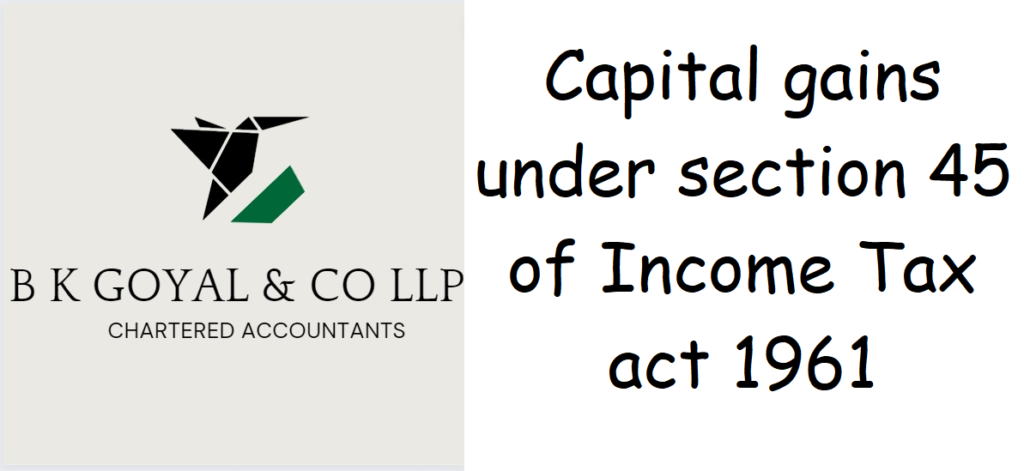
(1) Any profits or gains arising from the transfer of a capital asset effected in the previous year shall, save as otherwise provided in sections 54, 54B, 54D, 54E, 54EA, 54EB, 54F, 54G and 54H, be chargeable to income-tax under the head “Capital gains”, and shall be deemed to be the income of the previous year in which the transfer took place. (1A) Notwithstanding anything […]
Special provision for computing profits and gains of foreign companies engaged in the business of civil construction, etc., in certain turnkey power projects under section 44BBB of Income Tax act 1961
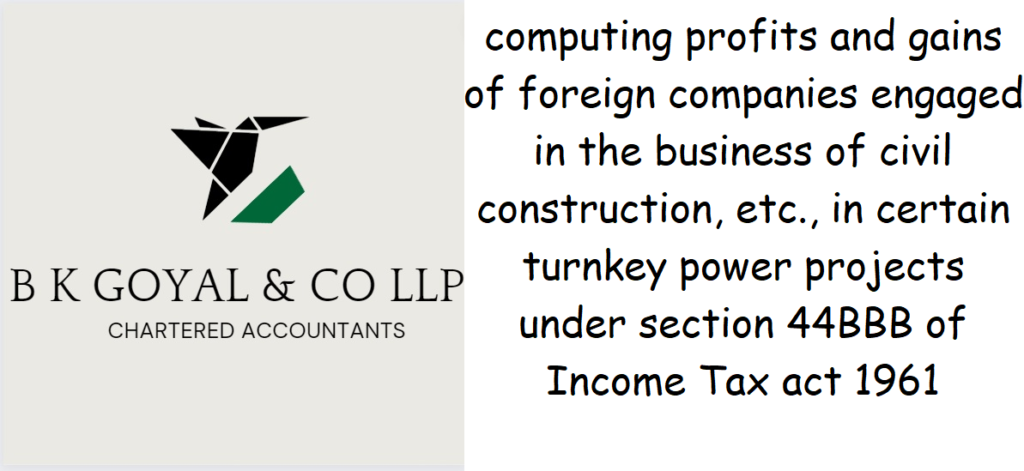
(1) Notwithstanding anything to the contrary contained in sections 28 to 44AA, in the case of an assessee, being a foreign company, engaged in the business of civil construction or the business of erection of plant or machinery or testing or commissioning thereof, in connection with a turnkey power project approved by the Central Government in this behalf, […]
Capital gains on distribution of assets by companies in liquidation under section 46 of Income Tax act 1961
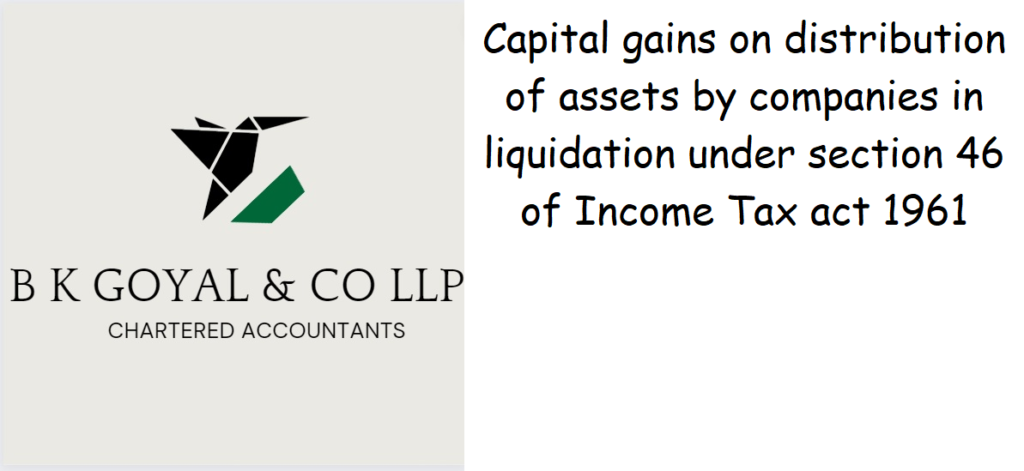
(1) Notwithstanding anything contained in section 45, where the assets of a company are distributed to its shareholders on its liquidation, such distribution shall not be regarded as a transfer by the company for the purposes of section 45. (2) Where a shareholder on the liquidation of a company receives any money or other assets from the […]
Special provision for computing profits and gains of the business of operation of aircraft in the case of non-residents under section 44BBA of Income Tax act 1961
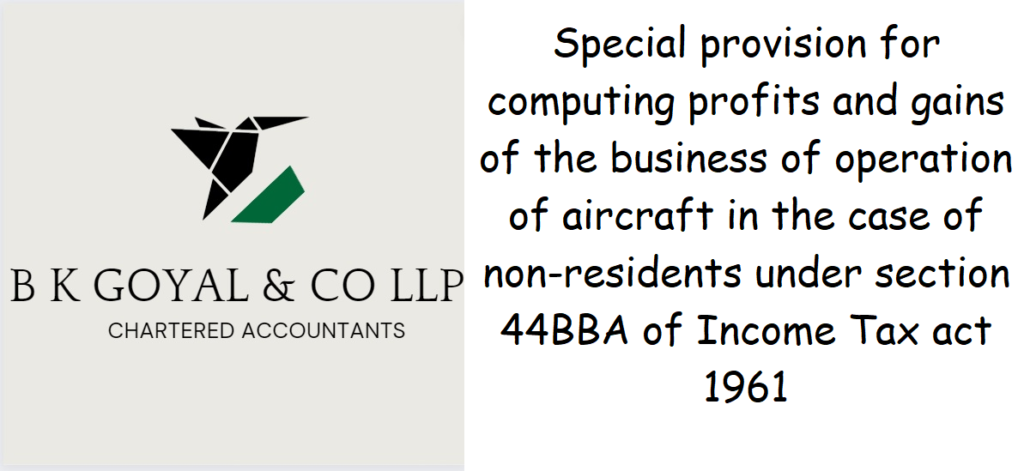
(1) Notwithstanding anything to the contrary contained in sections 28 to 43A, in the case of an assessee, being a non-resident, engaged in the business of operation of aircraft, a sum equal to five per cent of the aggregate of the amounts specified in sub-section (2) shall be deemed to be the profits and gains of such business […]
Capital gains on purchase by company of its own shares or other specified securities under section 46A of Income Tax act 1961
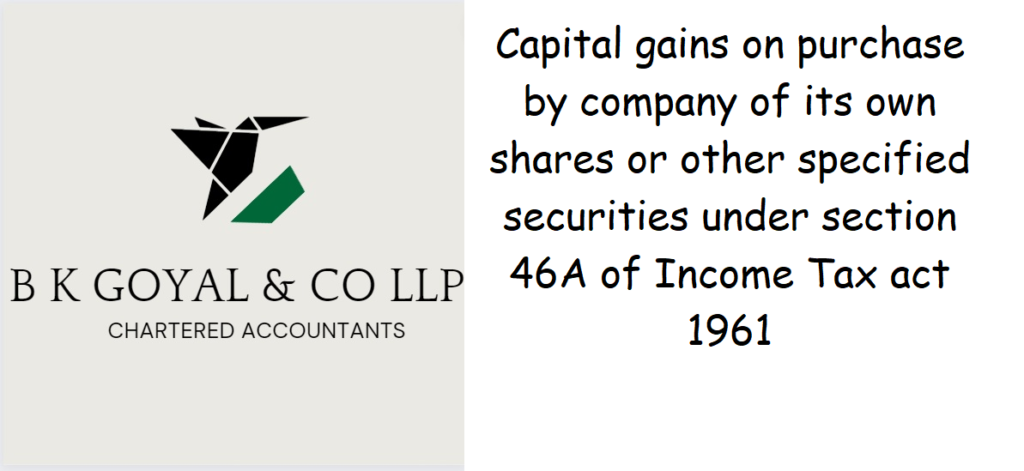
Where a shareholder or a holder of other specified securities receives any consideration from any company for purchase of its own shares or other specified securities held by such shareholder or holder of other specified securities, then, subject to the provisions of section 48, the difference between the cost of acquisition and the value of consideration […]
Special provision for computing profits and gains in connection with the business of exploration, etc., of mineral oils under section 44BB of Income Tax act 1961
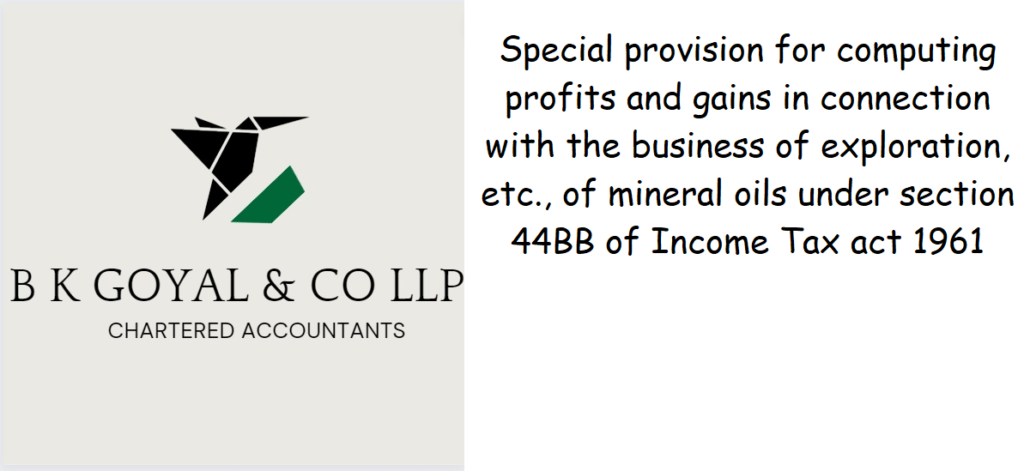
(1) Notwithstanding anything to the contrary contained in sections 28 to 41 and sections 43 and 43A, in the case of an assessee, being a non-resident, engaged in the business of providing services or facilities in connection with, or supplying plant and machinery on hire used, or to be used, in the prospecting for, or extraction or production of, mineral oils, a […]
Notification No 92/2020-Central Tax
[To be published in the Gazette of India, Extraordinary,Part II,Section 3, Sub-section (ii)] Government of India Ministry of Finance (Department of Revenue) Central Board of Indirect Taxes and Customs Notification No 92/2020-Central Tax New Delhi, the 22nd December, 2020 S.O. …… (E).— In exercise of the powers conferred by sub-section (2) of section 1 of […]
Bogus Billings, Fake Input Credit, GST Evasion and Arrests
Introduction Let’s face it, the moment a new tax system is introduced, there’s always a group of cunning individuals plotting to dodge it. In India, the Goods and Services Tax (GST) system is no exception. From counterfeit invoices to fabricated input tax credits, the modus operandi of GST evasion in India is as diverse as […]
Certificate of Share under section 46 of Companies Act 2013
Introduction: Decoding the Certificate of Shares Section 46 Companies Act 2013 You’ve probably heard of the Certificate of Shares under Section 46 Companies Act 2013, but what exactly is it all about? In today’s fast-paced corporate world, understanding the nuances of the Companies Act can give you a competitive edge. So, buckle up, and let’s […]